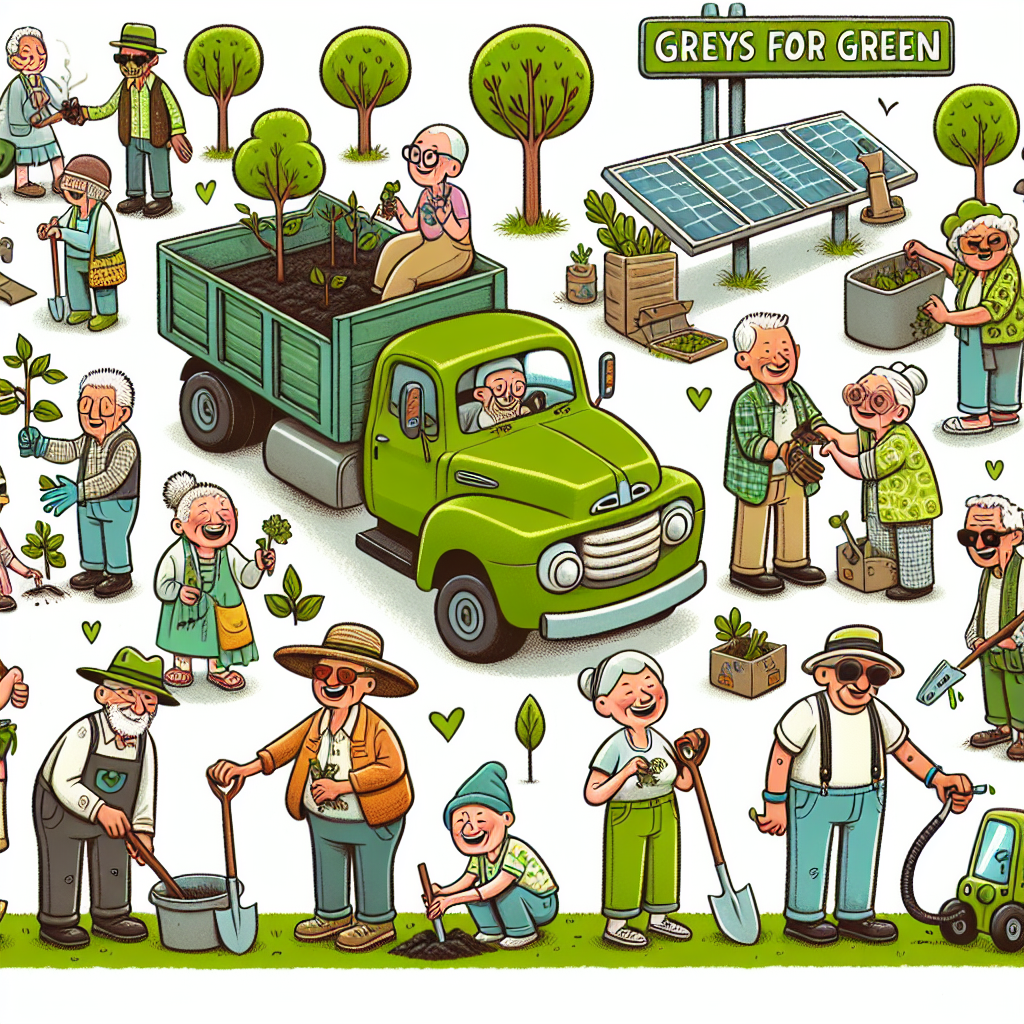GREYS FOR GREEN: Good climate news springing through the negative

Look, I’m the kind of guy who loves the sound of a diesel engine rumbling under the hood of my truck, the company of a loyal dog, and a solid debate where facts matter—even if I don’t always sugarcoat my words. But lately, every time I turn on the news or scroll through the feed, it’s the same old doomsday story about climate change. Floods, fires, shrinking ice caps—you get the picture. It’s a parade of bad news wrapped in guilt and anxiety. And honestly? It gets exhausting.
But here’s the thing. The article “Greys for Green: Good climate news springing through the negative” caught my attention because it’s not another crapfest about what’s going wrong. Instead, it shines a light on some of the less glamorous but important wins happening right under our noses in places like Alliston and New Tecumseth. And you know what? That’s the kind of stuff that actually deserves some attention.
First off, the whole “Greys for Green” angle? I like it. It’s essentially senior citizens—the “greys”—chipping in to make their communities healthier and greener. There’s no denying that old folks have a reputation for being stuck in their ways, maybe a bit resistant to change. Hell, around my neck of the woods, some of the older crowd still refuses to ditch their massive gas-guzzling pickups, but these examples show a different story. When the community rallies with workshops, tree planting, and sustainable initiatives, it doesn’t matter how many decades you’ve been around—the planet benefits when people get involved.
Here’s what makes these stories worth something: they’re grassroots, real, and locally driven. Unlike the big political stage where debates stall and interest groups shout over each other, these initiatives prove that change on a smaller scale can add up. It’s easy to get cynical about “alternative energy” projects or “EarthFest” style events, thinking they’re token gestures or just feel-good fluff. But the fact that some communities are embracing solar panels, preserving green spaces, and teaching kids about environmental responsibility is a far cry better than sitting on our hands while complaining about how screwed we are.
Now, I’ve got no patience for some of the preachy climate alarmists who act like it’s already too late and that anyone who enjoys a beer with their buddies or a good old-fashioned BBQ is contributing to the apocalypse. Life’s about balance. The truth is, you can care about preserving the environment while still enjoying your truck’s roar or a cold beer on the weekend. It’s not some zero-sum game where you have to be an eco-zealot or a stone-cold skeptic.
That being said, it’s frustrating how the mainstream conversation around climate change often gets hijacked by doom-mongers or political grandstanders. Those screaming about the end of the world without pointing to practical solutions turn me off. On the other hand, stories like those highlighted in this article are the kind that deserve more airtime because they represent actual progress, not just hand-wringing. And progress, even if slow, is better than paralysis.
Another thing worth noting is how these climate efforts are bridging generations, something that society needs more of. The greys getting involved in green efforts to protect the future for grandkids or the younger generations isn’t just noble—it’s necessary. Too often, there’s this weird divide between old and young when it comes to environmental issues. The young get labeled as naïve idealists, and the old as obstinate fossils. But it doesn’t have to be that way. Collaboration across age groups might just be the secret sauce to getting sustainable projects off the ground and keeping them alive.
And sure, there’s an undeniable political undercurrent to all this. Climate change can feel like some left-wing agenda shoved down everyone’s throat, stirring up resentment from folks who drive pickups for work or just don’t trust government mandates. But when you strip away the politics and look at the facts on the ground—as this article does—it becomes harder to deny the benefits of certain environmental actions. Cleaner air, more green spaces, less waste clogging up waterways: these are things that make communities better for everyone, regardless of political leanings.
I’m also not blind to the fact that these green initiatives often get handcuffed by bureaucracy or funding issues. No amount of passion from local communities can always overcome the uphill battle for grants or government support. Still, when communities band together, pool their resources, and refuse to wait for some distant politician to get it right, that’s when real change happens. And honestly, that resilience and grit is something I can respect.
So yeah, the climate news isn’t all bad. Sometimes, when you sift through the noise and the smack talk, you find these nuggets of hope that don’t get the headlines they deserve. The truth is, small victories in local towns, driven by real folks who care, may not end up on the cover of every newspaper, but they’re exactly the kind of progress that can build momentum for bigger wins down the road.
I don’t expect every climate story to suddenly turn into a feel-good series, and I’m certainly not advocating everyone ditch their pickup for a scooter tomorrow. What I am saying is that no matter what your politics or your lifestyle, there’s something worth recognizing in these grassroots green efforts. They’re practical, they’re local, and they’re fuelled by people who choose action over apathy. And that’s a change I can get behind—even if it comes with a bit of gruff old-school grit mixed with some fresh green ideas.
At the end of the day, if we can keep expanding these kinds of efforts—get more “greys” getting their hands dirty alongside the “greens”—maybe there’s hope after all. Because the planet’s future isn’t just about doomsday predictions; it’s about the choices we make today, even the small ones, in towns and communities that don’t always make the news but sure as hell make a difference.

